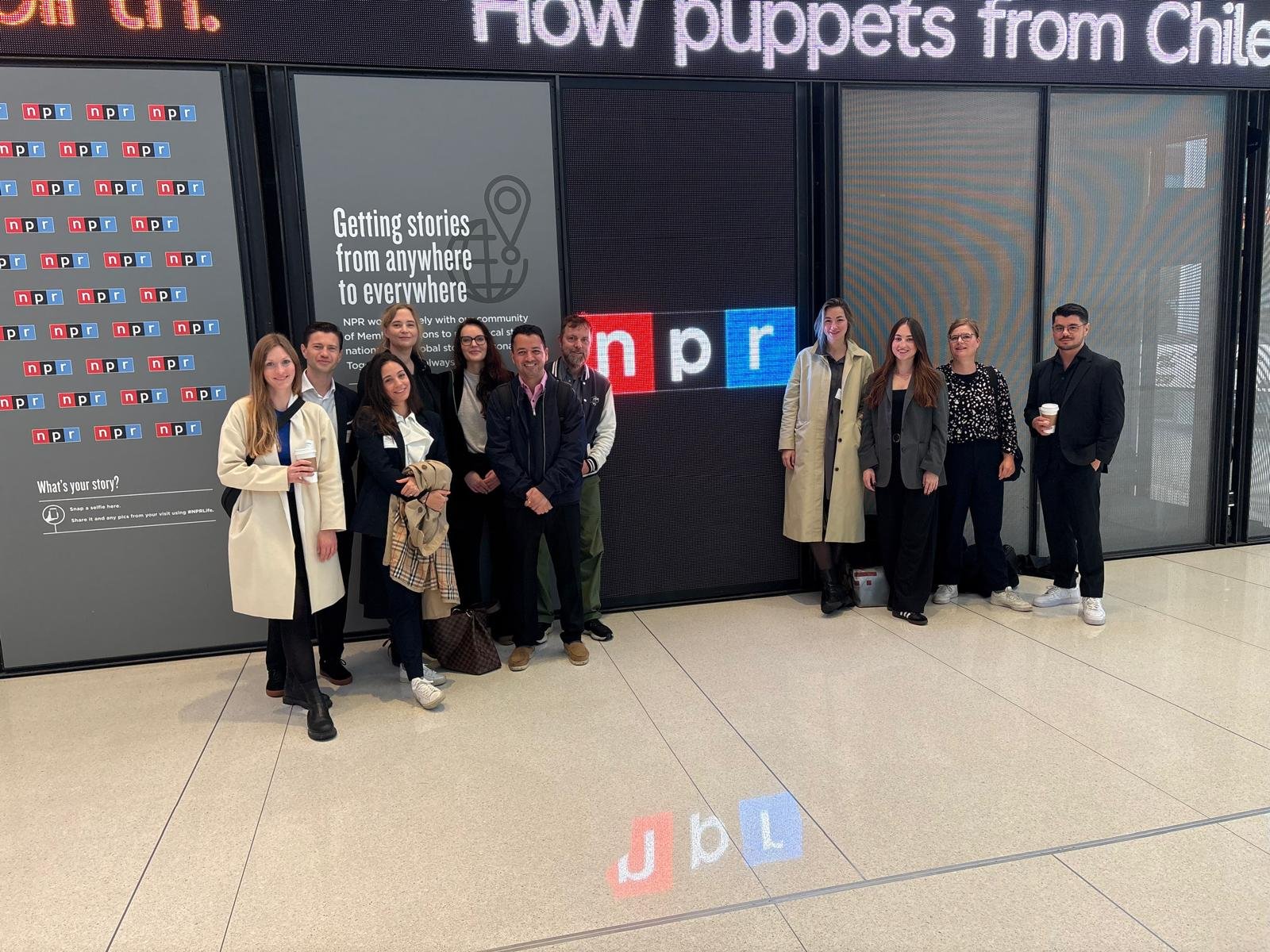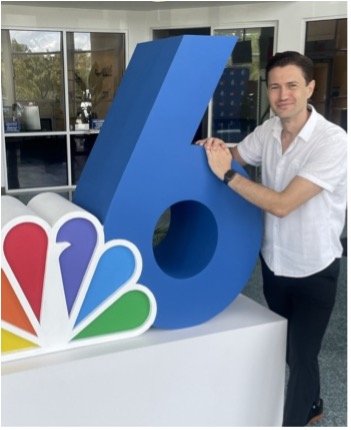
Carsten Upadek, WDR, Cologne
A notebook filled with writing, hundreds of photos, and a treasure trove of experiences — that and more is what I brought back from our amazing trip with the RIAS Berlin Commission Fellowship. New York, Philadelphia, Miami, Washington — four remarkable cities in less than two weeks. Each day was so packed with impressions that it felt much longer than 24 hours. For me, it was a deep dive into American society. Right from the start in New York, one fascinating meeting followed another: the Committee to Protect Journalists, The Daily (my first ever downloaded podcast), and 9/11 eyewitness Gordon Huie. One of the most emotional moments for me was hearing his deeply personal and moving story about the terrorist attack on the World Trade Center in 2001. Gordon’s conclusion: “It hasn’t healed. It won’t.” Then, breaking news just after I arrived in Miami: NBC6 South Florida reported on a man who had shot at police officers and barricaded himself inside a building. “Nothing unusual,” I was told. Still, my host and her coworkers took the time to talk with me about formats, distribution channels, and the media market — something I was very grateful for. Whether in Florida or in Washington, our final stop, the conversation always came back to the current administration under Donald Trump — an administration intent on redefining what is true, legitimate, and American. It’s safe to say that things will stay interesting. Meanwhile, twelve German journalists from different media outlets grew into a close-knit group, meeting wonderful U.S. RIAS alumni in different cities along the way. I’m happy, grateful, and a little proud to now be part of this Alumni-circle. Like the others in my cohort, I’m sure I learned a lot, had a lot of fun, and can wholeheartedly recommend the program.
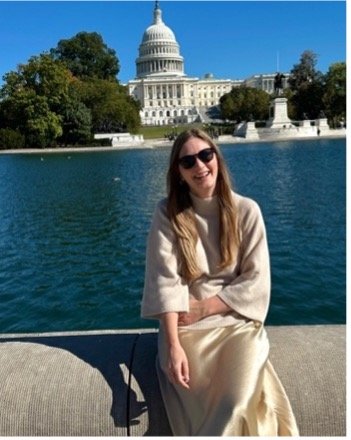
Elisabeth Kagermeier, BR/ARD, Munich
We stand in Washington, D.C., at a Metro station, a food court or walk through Georgetown – and in all those places we see the National Guards, that Donald Trump sent to the capital, patrolling. We meet the Pentagon correspondent of NPR who had to turn in his badge the same day because he refused to agree to the new restrictive policies of Pete Hegseth – as almost all other members of the press corps as well. I stand at a rainbow crosswalk in San Antonio, Texas, and ask myself how long it’s still going to be there. While I was there, the Governor of Texas said he wants cities to remove such symbols of pride from public roads and threatens to withhold or deny state and federal funding. During the time I got to spend in the U.S. with the RIAS Berlin Commission moments like these showed me every day what the never-ending breaking news cycle during Trump II really means for the people living here. The two weeks have been packed with visits to five different cities between the East Coast and Texas and just so many interesting experiences and conversations. We talked to journalists from various media outlets about how they are dealing with Trump’s second term, and with Democrats and think tanks about how they are positioning themselves for the midterms and 2028. At the Heritage Foundation, we discussed with one of the authors of “Project 2025” what they plan to do next after Trump has already implemented a large part of “Project 2025” just 9 months into his second presidency. At the same time, we also experienced how normal life in the U.S. somehow continues amid the crisis of democracy — and we, the RIAS group, right in the middle of it, spending evenings on rooftop bars or trying to find the best bagels in town. On the last day of our trip millions of people across the U.S. rallied against the Trump administration at the “No Kings” protest. With the images of that day (and the previous 13 days) still in my head, I board the plane home knowing I’ll definitely be back. A huge thank you to the RIAS Berlin Commission and everyone involved! And thanks to our great group for the wonderful time together!
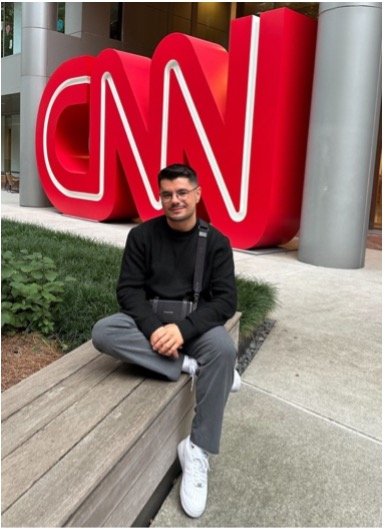
Burak Kahraman, RTL, Cologne
Two countries, the same mission. One industry, but two worlds. The RIAS program was eye-opening. No, Republicans and Democrats are not fighting in the hallways of Congress. Yes, New York is much safer than viral TikTok videos claim. There are not many opportunities that allow you to meet so many different media outlets, museums, think tanks, and government agencies in a very short period of time and in a foreign country, to engage in direct dialogue with them. Even more important during these days. We saw Vance and his escort, as well as the helicopters that picked up Trump from the White House, and were there on the historic day when millions of Americans went on the streets for the "No Kings" protests. At the same time, I was able to experience American cuisine (hot sauce, soulfood, chicken biscuits!!), connect with "non-journalist citizens" during a hike, and get a closer look at the culture and lifestyle of Americans. I was able to gain a lot of professional and personal insights from the trip, and I am infinitely grateful to RIAS for that. I never would have expected that German media (and especially RTL) would be far more advanced than many US media outlets in terms of verification, streaming, and the use and handling of AI – both locally and nationally. On the other hand, I was mindblown by the fact that 11Alive is able to operate completely without any cameramen and sound assistants on set and that the news anchors have neither hairstylists nor make-up artists. The program is also a great opportunity to connect with colleagues, both across the Atlantic and from my own country. My US network got expanded, and new friendships have been made in Germany. I can highly recommend the program to everyone and would participate again anytime. Thanks to the entire team and my personal hosts during the station days for making this trip as diverse and informative as possible.
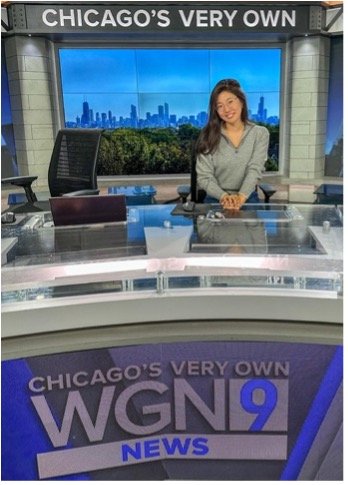
Bo Hyun Kim, HR/WDR/DLF, Frankfurt am Main
Twelve participants from Germany, plus the RIAS team around Christoph, the best support—Pam—and the good souls in the background, led by Christina. Two weeks in the U.S. In the end, it’s not a travelogue but impressions that stick. New York. At the 9/11 Memorial we meet Gordon, a survivor and bereaved family member of the attacks. His account is precise and personal—the moment stays with you. Later we visit the New York Times and get a clear look at day-to-day podcast work, from briefing to edit. Philadelphia. Founding ideas and the long legacy of slavery stand side by side. History feels present, and we are in the middle of it. We’re shown documents that shaped the country—early drafts of the U.S. Constitution—and heavy iron shackles, the everyday reality of slavery. Chicago. During the Station Days, host Ryan Burrow leads us through newsrooms and across the city. At the Broadview protests, next to ICE officers, we hear how reporters work with tight resources, legal risks, and growing distrust. Washington, D.C. The National Guard is visible in the cityscape. Behind doors without cameras, we speak with representatives of both political camps—staffers and think tanks. Not a panel, but working conversations: migration, security, education, media trust—treated as concrete decisions with consequences. One special encounter: a conversation with media lawyer Seth Berlin, who explains how the new reality in the U.S. is shaping his work. Return. I could write more about every meeting, but what matters is what remains: reliable contacts, friendships, invaluable insights, and a clear mission to keep working—together—on the transatlantic friendship
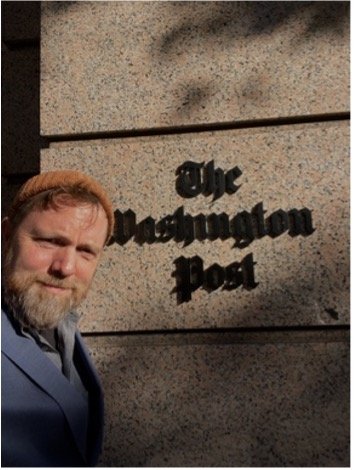
Mark Diening, ARD, Berlin
The RIAS Berlin Commission program was nothing less than an eye-opener for me, and if not a game-changer, then at least a mind-changer. I return with profound insights into the US media system and also into a society whose cohesion is being challenged as rarely, if ever, before. Above all, my stay has shown me that free, independent and objective journalism is more important than ever in these volatile and unstable political times. And I have been able to participate in the work of colleagues who, with great competence, accuracy, and courage, meet the enormous challenges of journalism every day: observing, reporting, researching, and classifying. Having to deal with a media landscape that is not independently funded and therefore very different from ours in terms of its dependencies, with opinion makers who are sometimes extreme, even populist and propagandistic, and at the same time defending freedom of the press, freedom of opinion and freedom of speech, which are fundamentally threatened, demanded my utmost respect. The occasionally challenging encounters I had during my RIAS stay, for example in New York and especially in Washington, strengthened my belief that independent, free and objective journalism is inextricably linked to the preservation of democracy, indeed that it supports it as a pillar, and is indispensable in providing guidance to people in difficult times such as those we are currently experiencing Above all, however, I have made lasting friendships, both with colleagues from Germany, with whom I was able to share these experiences in the RIAS group, and with US colleagues whom we met during the programme and at alumni meetings. I was particularly impressed by the men and women of WSOC in Charlotte, North Carolina, where I was able to spend four wonderful days during my station days. The warmth with which I was welcomed there and the curiosity I experienced while exchanging ideas about the differences and similarities between the media systems in the USA and Germany in Charlotte will surely remain with me forever! Furthermore, I was fascinated by the professionalism, precision, and speed of the WSOC team's daily work in the newsroom. We are already engaged in lively exchanges across continents, both in terms of journalistic work and on a personal level. We have made friends! In short, the RIAS Berlin Commission program has enriched me with insights and experiences I never would have thought possible. I can only recommend every journalist to apply.
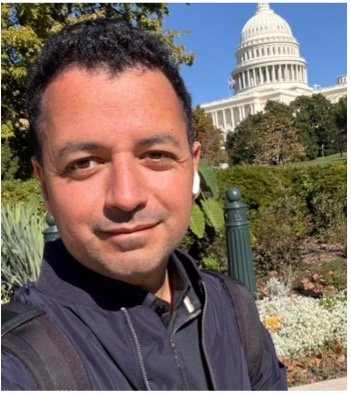
Daniel Koop, WELT, Frankfurt am Main/Berlin
Having just returned from the United States, I look back on my participation in the RIAS programm with gratitude. I’ve always been fascinated by American journalism, the political landscape, and everything that is currently happening in the U.S. It was therefore an honour for me to be able to take part at such a pivotal time – a moment when press freedom is increasinlgy under pressure, while the country faces major international crises and simultaneously experiences one of its most significant internal struggles in recent history. One of the most inspiring and moving experiences was the exchange with journalists on the ground, especially in Washington. Many of them shared with us not only their exhaustion but also their deep commitment to their work. I will never forget the conversation with a Pentagon reporter who, due to new restrictions, had to return his credentials that very same day. Equally memorable were our meetings with representatives from the Heritage Foundation, staunch defenders of Trump’s policies, and the intense, meaningful conversations with my fellow German participants — many of whom became close friends. There are many more experiences I could mention. I look forward to staying in touch with RIAS and continuing this important transatlantic dialogue.
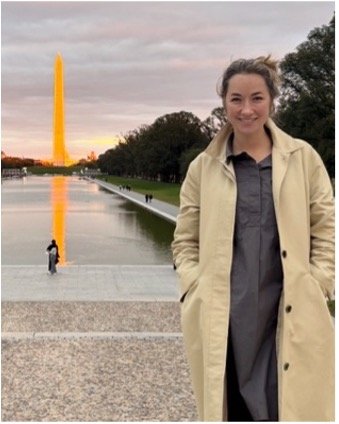
Constanze Kainz, DIE ZEIT, Berlin
It is nearly impossible to sum up two weeks with RIAS in a short text. There were so many impressions, so many exciting conversations and discussions, so many impressive people I had the privilege of meeting. Right at our first appointment in New York with the Committee to Protect Journalists, we learned how much the current administration is changing the US media landscape. This was a recurring theme during almost all of our editorial visits. Particularly memorable was a conversation we had in Washington, D.C. with Tom Bowman from NPR: he had held a Pentagon press pass for 28 years – until the day we met him. On October 14, he had to hand in his pass because, like almost all Pentagon reporters, he refused to sign a new rule introduced by US Defense Secretary Pete Hegseth. A rule about which he wrote: “Signing that document would make us stenographers parroting press releases, not watchdogs holding government officials accountable.” We visited the US at a time that many of our interviewees described as crucial. Donald Trump has now been in office for a year, with another year to go until the midterms. The National Guard was on duty in a number of cities, and we saw them ourselves in Washington, D.C. “This is only the beginning,” said an employee of the Heritage Foundation, the ultra-conservative thinktank behind “Project 2025.” During our trip, we gained deep insights into both political camps and witnessed the growing protest against Trump at the “No kings” demonstrations at the end of our visit. I will remember many moments from this trip: visiting “The Daily” at the New York Times, the Washington Post or Telemundo. I won’t forget our conversation with Democratic Congressman Greg Landsman, Gwen Ragsdale's stories at the Lest We Forget Slavery Museum in Philadelphia and, of course, my station days at NPR affiliate KUOW in Seattle. One thing I'm particularly looking forward to now is being part of the RIAS network. It was incredibly fun to travel with this year's fellows and so enriching to get to know so many US colleagues. See you soon, and many thanks to everyone who made this exchange possible.
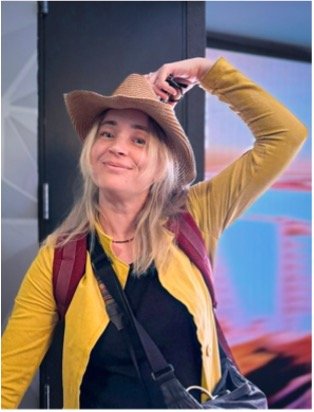
Gönna Ketels, Deutsche Welle, Berlin
My highlight? Definitely the station days in Dallas! Three intense days of journalistic insights and Texan lifestyle, including a cattle drive in Fort Worth with longhorn cattle and deep-fried everything at the Texas State Fair. Our hosts, Jason Whitely (WFAA) and Dan Godwin (FOX4), gave us a glimpse into their work and their city. Between discussions about the economy, gun laws and political polarisation, I got a sense of how challenging, but also how indispensable, local journalism is there. Our time in Washington, Philadelphia, and New York threw us right into the heart of the political and media DNA of the United States. Whether at the “Lest We Forget Slavery Museum” or NPR, The New York Times, NBC, and several think tanks, the conversations kept circling back to democracy, freedom of speech, and the question of how journalism can stay credible in times of mistrust. I was particularly impressed by how openly our American colleagues spoke to us and how determined they are to defend press freedom and fact-based reporting. Equally inspiring was the exchange with the other German fellows – so many perspectives, conversations, and a shared fascination with this complex country. I’m returning with a sharper view of the U.S., a deeper appreciation of the realities of our profession, and a firm belief that international exchange among journalists matters more than ever. In short: The RIAS Fellowship broadened my perspective, fuelled my curiosity and reminded me that journalists on both sides of the Atlantic grapple with the same challenges and contradictions. A big thank you to the RIAS Commission for this journey and the opportunity to experience journalism across borders. And that cowboy hat from Texas? I just might wear it to the office in Berlin!
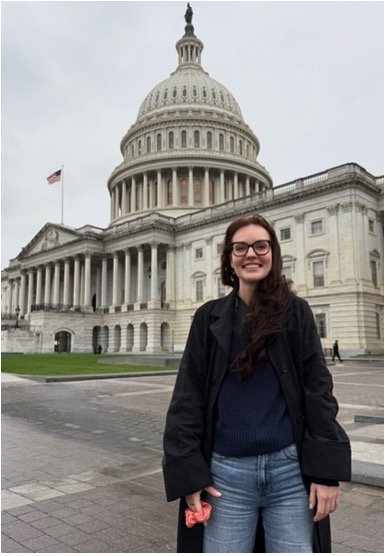
Jessica Körner, RTL, Cologne
The experiences I gained at RIAS were priceless: exchanges with renowned journalists from the New York Times and the Washington Post, meetings at the German Embassy, and with fascinating think tanks. Without this program, such personal and profound insights would probably not have been possible. I’m taking away so many fresh perspectives from this time, a lot of input for my work here in Germany, and wonderful contacts that will hopefully last forever. One particularly moving moment was meeting a 9/11 survivor. He shared that terrible day with us from a completely different and very personal perspective, and it was an absolute privilege to be able to talk to him and ask questions. Another highlight were the Station Days in Chicago. RIAS alumni Ryan and Erik, who were our hosts, showed me how they work at WGN TV and Radio, and took me to an ICE deportation protest. With RIAS, you’re right there when history is being made! The program is rounded off by the wonderful camaraderie within the group — a time I will never forget and cherish forever!
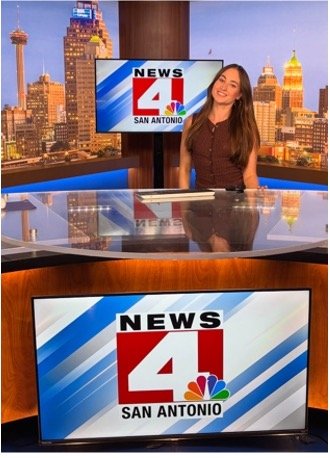
Julia Lautzschmann, phoenix, Bonn
Time and again, people ask me: “How was it? What was the highlight?” And every time, I struggle to find the words to describe those exciting and unforgettable two weeks in all their richness. Where do you even begin? And how can you possibly put all the impressions, emotions, and experiences into words? There isn’t ONE single highlight– every place, every encounter, and every conversation was special in its own way. It was impressive to see major media outlets like The New York Times and The Washington Post from the inside and to learn about how they work. At the same time, it was the small, personal moments that made this trip so valuable – like sharing pizza and having open conversations at NOTUS, or the unexpected greeting to Helene Fischer music at NBC 4. Some encounters were deeply moving, such as the conversation with 9/11 survivor Gordon Huie or the visit to the Lest We Forget Slavery Museum in Philadelphia. Others left me thoughtful or even unsettled: the meeting with the Heritage Foundation, or the casual sight of the National Guard patrolling through Washington while you’re sitting down for lunch. What also stands out vividly in my memory are my Station Days in San Antonio, Texas. At Fox San Antonio and News4SA, we gained an honest look behind the scenes of American local newsrooms – where serious headlines sometimes sit right next to donut commercials. One particularly emotional moment was visiting Camp Mystic, where several young girls lost their lives during the devastating floods in July. The traces of destruction and grief were still clearly visible there. These two weeks not only gave me a deeper understanding of the current reality of the United States – with all its contrasts, political tensions, and challenges – but also allowed me to become part of the enriching RIAS network. I’m incredibly grateful to have taken part in this fellowship: for everything I was able to see, learn, and feel, and for the wonderful people I got to meet along the way.
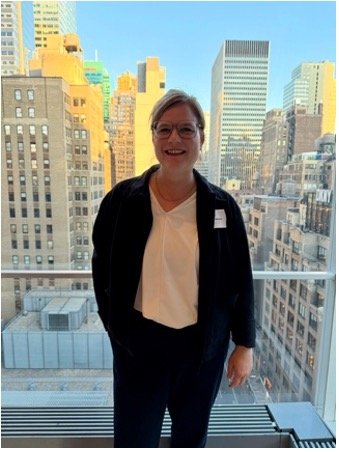
Nadine Lindner, Deutschlandradio, Berlin
What direction is the US taking politically in the first months of President Trump's second term? How will this affect politics and the media? These were the leading questions in decisive times in the US for our RIAS group. We spent 13 days in five cities, had more than 25 Meetings with amazing people. This gave us the opportunity to discuss the current situation in the US from different viewpoints. I just want to name three meetings that made the RIAS Program special for me First, there was The New York Times and their podcast The Daily, which I have been listening to for years. Second was the conservative Heritage Foundation. As I have been writing about the right-wing spectrum in Germany for over ten years, this was a great opportunity to learn about Heritage's talking points first-hand. Third was our visit to the private museum about the history of slavery in Philadelphia. The station days in Dallas, Texas were full of interesting impressions and gave us the opportunity to connect with RIAS Alumni Jason Whitely, Dan Godwin, Dionnne Anglin, and Marlissa Collier. I am convinced that the RIAS Program will inspire my work in Germany for a long time to come. I also want to express my gratitude to Chris and Pam for guiding us through this whirlwind of information.
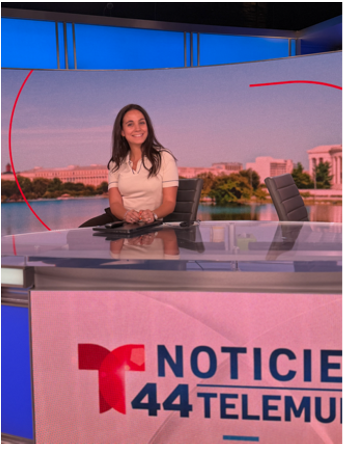
Sara Sievert, Table Media, Berlin
The RIAS program was an intensive and inspiring experience, offering a fresh perspective on the media, politics, and society of the United States. Visits to New York, Pennsylvania and Washington, D.C., offered a successful blend of historical, political, and journalistic events. Directly exchanging ideas with American colleagues at various media companies was particularly enriching. These discussions enabled us to learn about their working methods and their perspective on the country's current political and social situation. It became clear that many of the challenges facing journalism in the United States — from the crisis of trust and disinformation to economic uncertainty — are also concerns for us in Europe. The open and honest dialogue on this topic was informative and encouraging. One particularly memorable event was our visit to the Heritage Foundation in Washington. It was challenging because we saw how hard the organization is working to bring conservative, and sometimes democracy-threatening, positions into political discourse. In the current political climate, this insight was particularly revealing, showing how openly and aggressively the battle for interpretive authority and political power is being fought in the United States. This meeting demonstrated to me the importance of critically evaluating such perspectives and placing them in a broader social context, rather than uncritically adopting, or simply dismissing them. In addition to the exciting content, it was ultimately the personal exchanges within the group and with the local hosts that made the trip so special for me. During breaks, on long journeys and over shared meals, conversations arose that brought the transatlantic idea to life. The trip deepened my understanding of the United States and demonstrated the importance of journalistic exchange across borders, particularly in times of increasing polarization and disinformation. The RIAS trip imparted knowledge and strengthened my belief that dialogue and mutual interest provide the best foundation for understanding and trust.
